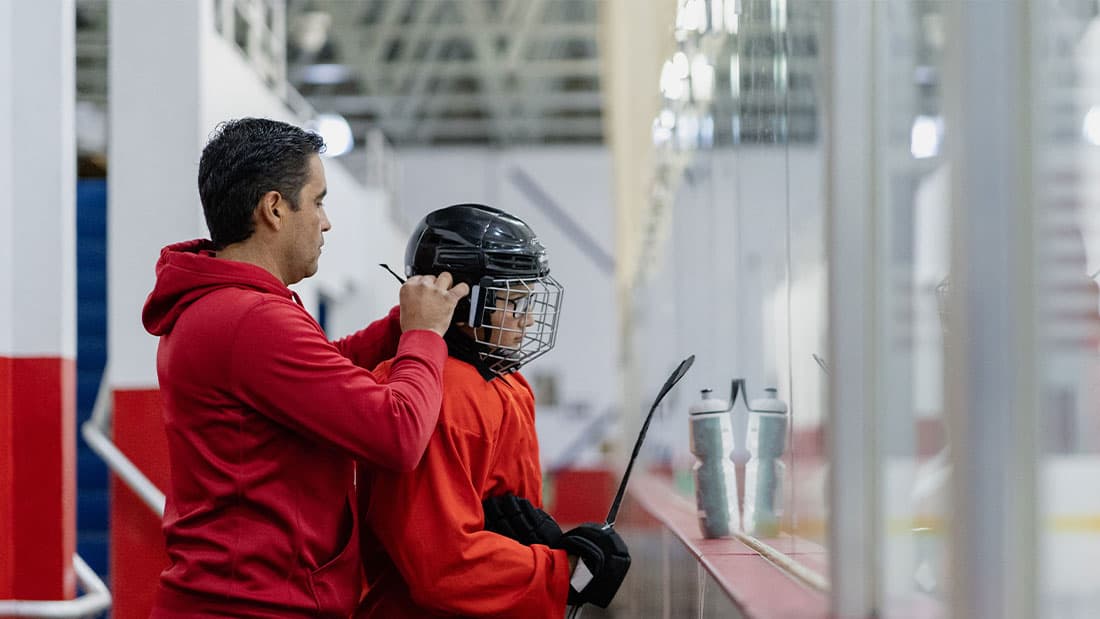Why You’re Overeating and What You Can Do to Stop
As a registered dietitian and nutrition therapist, I help clients focus not only on what they are eating but on why and how they are eating.
Sounds pretty simple. Eat when you’re hungry, stop when you’re full. But with so many unhealthy foods available in profusion, as well as unrealistic body types portrayed in the popular media, we no longer have intuitiveness about what to eat.
Athletes in particular may struggle to get enough calories without over-indulging. Their busy schedules—balancing practices, games, school, work, family and a social life—can be exhausting and cause them to overeat.
Here are some thoughts I had after reading The Emotional Eater’s Repair Manual, about why we overeat:
Cultural/family messages encourage us to ignore body signals. Do you remember hearing “clean your plate” or “no dessert until you eat all your dinner”? Such admonitions may not be intentionally harmful, but they subconsciously teach us to ignore our hunger cues.
Chronic dieting. I routinely hear about new diets or pills marketed with the promise that people can solve their eating and weight problems for good. Dieting is the worst thing you can do to achieve lasting weight loss. As soon as you limit or restrict yourself, you are prone to overeat at a later time.
Abundance of processed foods. I always encourage clients to buy whole, real foods. If something is “low-fat” or “sugar free,” it likely contains artificial ingredients or more of something else.
Lack of self care. It’s important to find happiness in your day-to-day life. Find time for yourself, exercise, get adequate sleep and pursue the activities you enjoy. If you do not take care of yourself emotionally and physically, you may rely too much on food as a source of comfort.
Read more:
RECOMMENDED FOR YOU
MOST POPULAR
Why You’re Overeating and What You Can Do to Stop
As a registered dietitian and nutrition therapist, I help clients focus not only on what they are eating but on why and how they are eating.
Sounds pretty simple. Eat when you’re hungry, stop when you’re full. But with so many unhealthy foods available in profusion, as well as unrealistic body types portrayed in the popular media, we no longer have intuitiveness about what to eat.
Athletes in particular may struggle to get enough calories without over-indulging. Their busy schedules—balancing practices, games, school, work, family and a social life—can be exhausting and cause them to overeat.
Here are some thoughts I had after reading The Emotional Eater’s Repair Manual, about why we overeat:
Cultural/family messages encourage us to ignore body signals. Do you remember hearing “clean your plate” or “no dessert until you eat all your dinner”? Such admonitions may not be intentionally harmful, but they subconsciously teach us to ignore our hunger cues.
Chronic dieting. I routinely hear about new diets or pills marketed with the promise that people can solve their eating and weight problems for good. Dieting is the worst thing you can do to achieve lasting weight loss. As soon as you limit or restrict yourself, you are prone to overeat at a later time.
Abundance of processed foods. I always encourage clients to buy whole, real foods. If something is “low-fat” or “sugar free,” it likely contains artificial ingredients or more of something else.
Lack of self care. It’s important to find happiness in your day-to-day life. Find time for yourself, exercise, get adequate sleep and pursue the activities you enjoy. If you do not take care of yourself emotionally and physically, you may rely too much on food as a source of comfort.
Read more:









